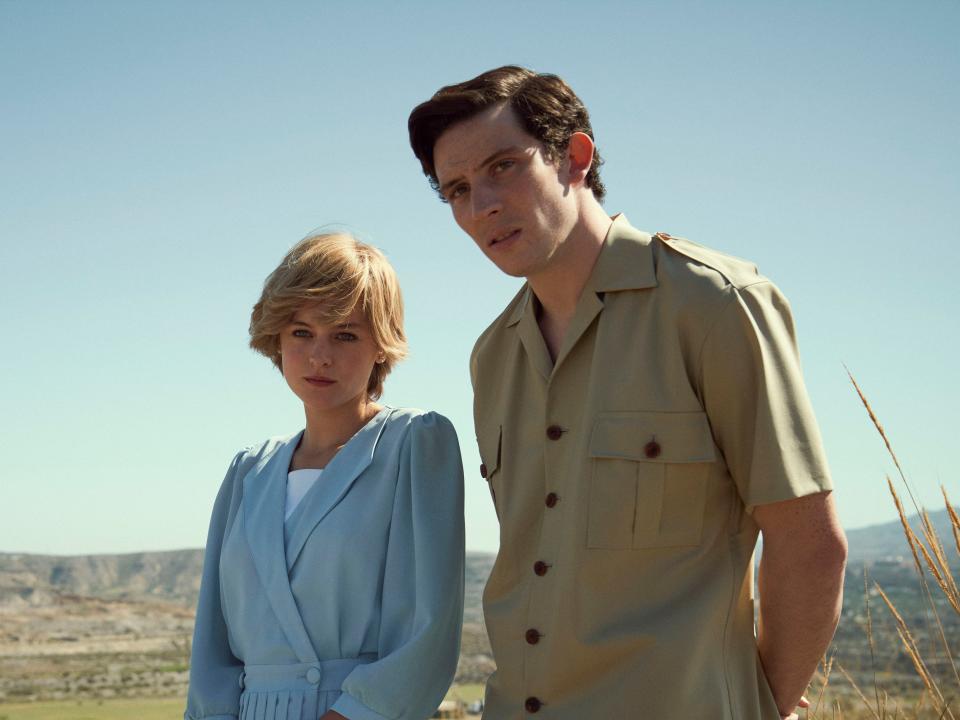The UK has been arrogant and entitled about its culture for too long. No wonder Europe is sick of us

This week, a leaked memo reportedly suggested that the EU is preparing to cut down on the amount of British TV and film content shown around Europe. Despite Brexit, UK films and TV programmes are still being classed as “European works”, meaning it is currently included in the EU’s audio-visual media services directive, which says the majority of airtime must be given to European content on terrestrial television. In many European countries, the presence of British film and TV shows featured is described as “disproportionate”, in the document seen by The Guardian.
Of course, it’s being branded as “revenge for Brexit” by publications such as The Daily Express, but this has been a long time coming. Britain has a certain arrogance when it comes to culture. The government loves to take credit for our biggest achievers – Adele, The Crown, Ed Sheeran, Doctor Who, The Beatles, Downton Abbey – but continually fails to support those who could, one day, meet similar levels of success. Festivals are dying in front of our eyes; small venues are pleading for donations from punters. Ed Sheeran didn’t become a phenomenon overnight. He toured relentlessly – at one point actually breaking records – in the UK’s smallest venues and around Europe until he’d established a devoted and widespread fanbase. Rag’n’Bone Man’s breakthrough single “Human” was No 1 in Belgium before it charted in the UK. Go further back in time: The Beatles honed their live performance in Hamburg, Germany, during a three-month residency. It was a German photographer, Astrid Kirchherr, who documented the band during that early, crucial time in their career.
If you travel around Europe, in France, Italy, Portugal, Germany, you can turn on the radio or the TV and chances are you’ll be met with a British artist or hit UK TV show. Friends in those countries tell me of their love for artists like Stormzy, Bastille, Mura Masa, Dua Lipa and Laura Marling. But the UK has never really returned the world’s appreciation for the art that we, as such a small isle, produce. It’s only in the past five or so years that non-English language music, from K-pop to reggaeton to Italian rock, has begun to chart in the UK without being a novelty. This most likely has something to do with the advent of streaming and the reshuffle of chart rules to incorporate those figures, too.
Radio stations can no longer ignore the fact that music fans have a growing appetite for what they’re hearing from other countries. Look at the top 50 on Spotify at any given time and you’ll find tracks in Spanish, Italian, French, Korean… English-language artists have cottoned on already – during the Latin pop boom you had acts such as Little Mix, Beyonce, Justin Bieber and Jason Derulo collaborating with Maluma, J Balvin, Daddy Yankee and Bad Bunny.
In January, it emerged that the French-language heist thriller series Lupin was holding its own against The Witcher for audience numbers. Call My Agent! (Dix Pour Cent in France) became a word-of-mouth favourite in the UK and the US, and is now being developed for a fifth season and a feature film. Glancing at Netflix’s Top 10 in the UK at the time of writing, I can see two non-English language productions: the new series of Lupin, and the Spanish teen drama Elite.
Brexit has thrown that hubris into a grim new light. Amid all that blustering about the brilliance of British culture was a complete erasure of how much immigration contributes to that. Dua Lipa, a Grammy-winning pop star who is currently one of the most-streamed artists in the world with a string of Platinum singles to her name? The daughter of Albanian immigrants. Mercury Prize-winning artist Michael Kiwanuka, whose song “You Ain’t the Problem” is being used as the intro theme for ITV’s Euro 2020 coverage? His parents fled the Amin regime in Uganda to the UK during the Eighties. That’s just skimming the surface. The UK’s culture was built on multiculturalism, on the mixing and merging of influences, language, art and life. But that message didn’t fit with the pro-Brexit campaigns that Britain can do just fine on its own, cut off from the rest of the world. It’s hardly a shock, then, that the rest of Europe has grown tired of our entitlement.
Read More
Lucy Dacus interview: ‘I always wished that I’d had a more joyous journey with sexuality’
Rick and Morty went off the rails – but now it’s back to its time-hopping best
A bonanza of f**k-ups and trolling: What I learnt from being glued to GB News for a week

 Yahoo Finance
Yahoo Finance 